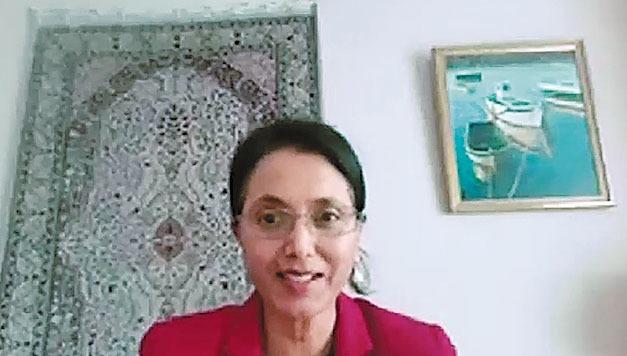 Shamila Nair-Bedouelle, assistant director-general for natural sciences at UNESCO, has built an international career as a research scientist and has profound experience in managing international programs. Before joining UNESCO, she headed the United Nations Environment Program's OzonAction Branch from 2012.
Shamila Nair-Bedouelle, assistant director-general for natural sciences at UNESCO, has built an international career as a research scientist and has profound experience in managing international programs. Before joining UNESCO, she headed the United Nations Environment Program's OzonAction Branch from 2012.
The COVID-19 pandemic has demonstrated an increasing need to make scientific data and information more accessible across the world and China has been an active contributor to answering that need, an UN official said.
Shamila Nair-Bedouelle told the Vision China event on Sunday that the COVID-19 crisis had shown a "unique and productive" international solidarity among scientists across the globe, who had been exchanging scientific and technological data beyond country borders. Nair-Bedouelle said Chinese scientists sequenced the genome of the novel coronavirus very early and posted it online in a bid to promote open science and scientific collaboration around the world.
The sequencing by the Chinese scientists was "extremely important" because it enabled scientists in Germany and other countries to develop a screening test "which could be used by the World Health Organization and help many governments to screen for this particular pandemic", she added.
ALSO READ: China firmly backs roles of UN, WHO in flighting COVID-19
Nair-Bedouelle said UNESCO especially welcomed the open science coronavirus platform set up by Chinese scientists and looked forward to working with them to continue the sharing of scientific and technological data.
"The initiative is really in the spirit of making science more accessible, more connected to societal needs and promoting equal opportunities for people and scientists across the world," she said, adding that the creation and transfer of scientific knowledge is critical to building and sustaining social and economic welfare in the global economy.
Nair-Bedouelle stressed the importance of scientific collaboration and sharing scientific data and information around the world as it not only helped management of the COVID-19 crisis but also preparations for future unknown global threats.
She said there's an increasing number of problems today that call for international scientific collaboration, including the COVID-19 pandemic.
"Achieving the sustainable development goals for a prosperous and peaceful world will require access to scientific information between the peoples and the nations of the world," Nair-Bedouelle said. "But it will also require a fundamental change in the relationships between scientists."


